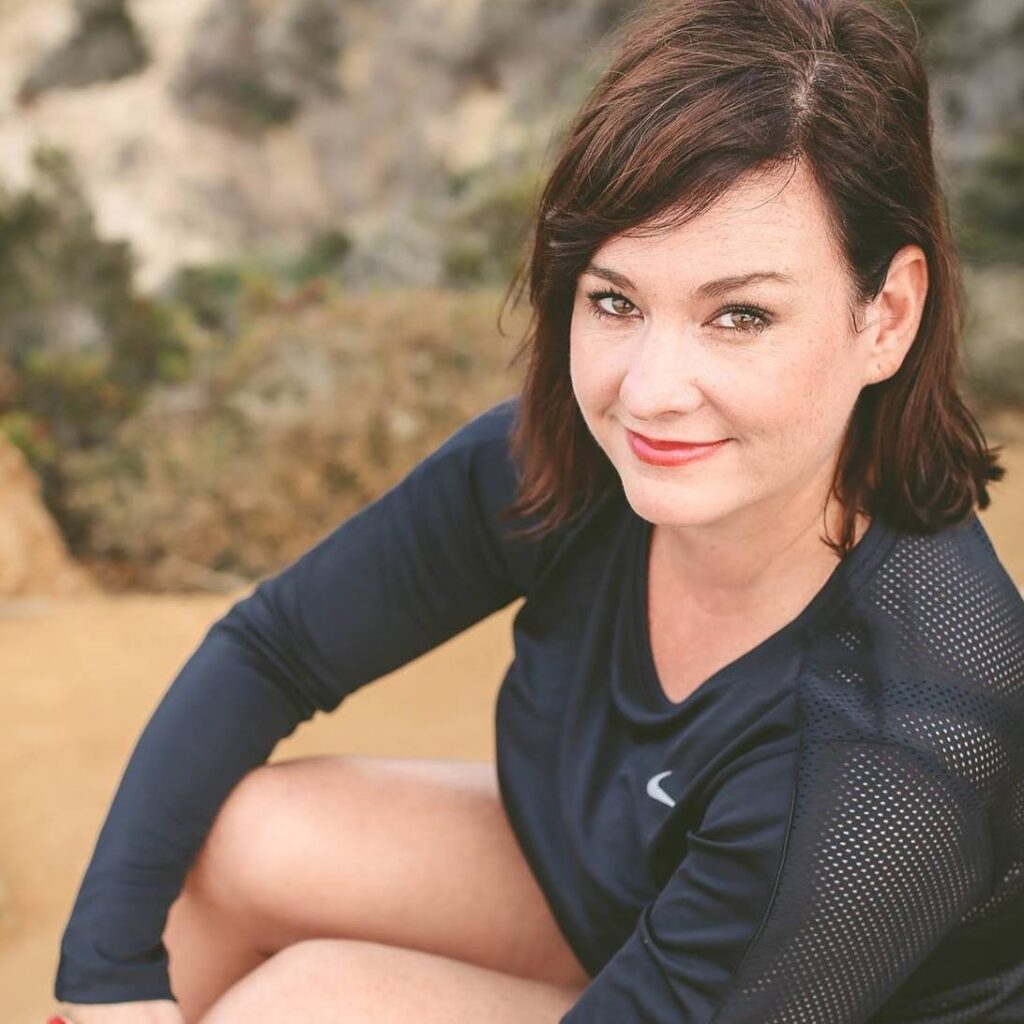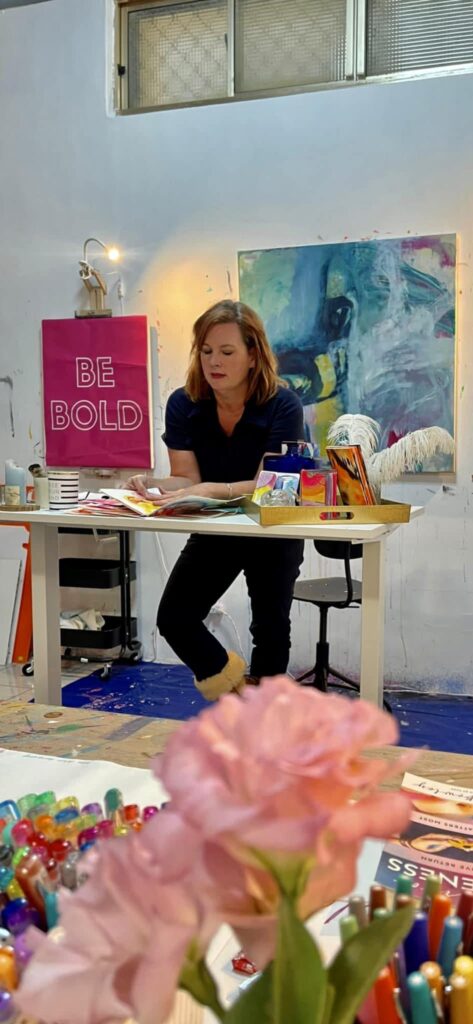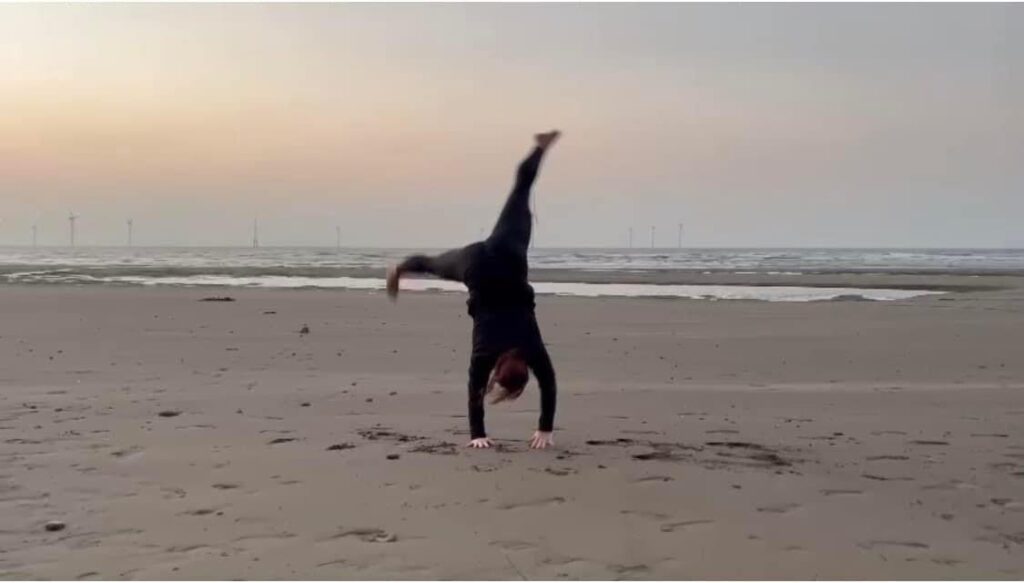Empowering Transitions: From Attorney to Mom to Life Coach
 In this episode, I interview Tracy Carrothers, a former public interest attorney who transitioned to becoming a life coach. We talk about career transitions through parenting, finding your true path when you’re out of the traditional workforce, and standing on equal footing with your partner when managing the household finances. Tracy shares her journey and how she now helps others navigate life’s transitions with resilience and purpose.
In this episode, I interview Tracy Carrothers, a former public interest attorney who transitioned to becoming a life coach. We talk about career transitions through parenting, finding your true path when you’re out of the traditional workforce, and standing on equal footing with your partner when managing the household finances. Tracy shares her journey and how she now helps others navigate life’s transitions with resilience and purpose.
Excerpt from the Podcast:
Jenni: Welcome to the Modern Family Finance podcast, where we talk about all things, money, career, and life. I’m Jenni, your host and a Bay Area financial planner, serving women and LGBTQ professionals.
So if you have ever asked questions like “how do I discover my true calling when it comes to my work?,” “how do I reclaim my identity after a career break to care for kids” or “how do I make a significant career change when I’m scared?,” then this is a conversation for you. In this episode, join us as we delve into the career journey of Tracy Carrothers, a former public interest attorney turned life coach. We explore how she discovered her true calling and now helps individuals navigate through life’s transitions with resilience and purpose. Welcome Tracy.
How can you maintain your identity when you take time off to parent? (01:00)
Tracy: Thanks for having me.
Jenni: Please tell us a little bit about your story as of way of introduction.

Tracy: I always like to go to the way back. I knew when I was 15 years old that I wanted to be an attorney and I always say that I was a very unlikely law student. My teen years were not smooth and it was unlikely that I’d even go to college.
And after graduation from high school, I moved out of the house and worked, but that calling to go to law school never went away. So I went back to college after a lot of financial and life ups and downs and eventually graduated law school after I was 30. I realized the dream of becoming the legal aid attorney that I wanted to be and it felt right.
After two years of practicing law, my husband was given the opportunity for work to move abroad to Japan. I was pregnant with our first son at the time. We said yes to Japan for a lot of reasons. One was the adventure part of living in a new country. The other was for my husband’s career trajectory. So I left being an attorney, moved abroad to Japan and started a whole new life.
Jenni: Yes, and we met during our overlapping time in Asia together. So, you worked hard as an attorney and then you took on a different full time role as a parent. How did you feel in terms of identity?
Tracy: I love this question because I think it’s relatable to a lot of women. I don’t think we talk about it enough. I had a brutal identity shift and it felt like the death of my ego because I had so much tied up into being an attorney.
I actually specifically never wanted to be a stay at home mom. I didn’t feel like that was the path for me at the time. I guess because I have some openness to me and hold everything a little bit loosely, this whole opportunity to Japan piqued an interest in me.
I was willing to go through the process of letting that identity go, but it was not easy. It was painful at times and I questioned it. Even now sometimes I look back and wonder if I could have done things a little bit differently. But having two sons who are 21 months apart, we didn’t want to have two high pressure careers at the same time. It’s certainly possible, but it wasn’t the life that I wanted to live. It wouldn’t have worked well for me.
So, I grappled with the shift and where I got my worth. It forced me into a process of identifying my true inner value. We’ve lived abroad for 16 years now, and I’ve gone through multiple ego deaths in that process, whether it’s from changing careers, physical limitations due to chronic pain, and even a battle with cancer. Now as a mother of teenagers, my role is changing as a parent as I am not as needed and they treat me differently. So learning how to let go what defines me in a certain role and just being solid in who I am is huge.
I always think about it during the dreaded cocktail party question when you meet somebody new and they say, “what do you do?” In those early years it was so painful. I had this roundabout story of how I was an attorney and then told why I left to convince them as to why I am still valuable. I felt like I had to prove I was worth talking to because I had internalized a lot of society’s ideas around success.
How do you find your true path when you’re out of the traditional workplace? (06:10)
Jenni: This question of value is a huge one, right? When we can’t claim a particular identity in the workplace we feel out of sync with society. What are some of the things that you did or experienced during your journey that helped? If you were advising your younger self, what would you advise her to do?
Tracy: I knew I wanted something else. I heard about coaching through O Magazine. So cliche.
Jenni: I loved O Magazine.
 Tracy: Dr. Martha Beck was a columnist and life coach. I loved this idea that you can design your own life the way you want to live it. It piqued my interest. So I started studying personal development, dabbled in a few coaching courses, and then ended up taking Martha Beck’s coach training program.
Tracy: Dr. Martha Beck was a columnist and life coach. I loved this idea that you can design your own life the way you want to live it. It piqued my interest. So I started studying personal development, dabbled in a few coaching courses, and then ended up taking Martha Beck’s coach training program.
So I’d say the first thing to do is pay attention to what piques your interest. You can follow the trails of these little things that first show up as breadcrumbs.
Secondly, I was vulnerable with others and would start engaging in conversations. I would say, “This is hard. I love being a mom, but who I am I?” In some spaces, I became a facilitator of those conversations which gave permission to talk about their struggles. So surround yourself with people who you can be vulnerable with who can have real conversations.
I also hired a coach who I’ve had this entire time. It’s huge to have somebody who is outside of my everyday life to ask me questions, and to teach me techniques and tools to discover my essential self and what I really wanted to do.
Lastly, when I reflect back I wish I had more models of women in my life who had done what I was doing. Perhaps I could have been able to hold on to practice law in a different way and still done the coaching bit if I would have known what was out there. But I didn’t have many women professionals around me. Graduating from college and going on to law school was a different path than most people I knew.
You know how they say, “if you don’t see it, it’s hard to dream it?” You don’t know what you don’t know. So start to look for people who have taken a similar path and to look at parts of their life that can inform the decisions that you want to make. Try to identify people who are living the kind of life you want who are 10 years ahead.
You want to create a “board of directors”. So even if you don’t have people in your real world who you can model or be your mentors, look for people who you admire and how they’re living. You want to keep them in your mind as your advisors.
Jenni: Yeah, I love this idea. It can be difficult to find the exact person who can sit on your personal “board of directors” and you may not even know what exactly you want to do. But what you are saying is that you can find friends or even people you don’t know who exhibit some kind of qualities that you want and use them as your inspiration. This could lead to a way of figuring out what you want.
Tracy: Yes. Let’s take social media as an example. I see the downside of it where people say that it contributes to social comparisons, but it can also be thought of as a tool to discover what we are craving if you use it intentionally.
For example, you see a picture of someone traveling and you’re feeling jealous. Another way to look at it is to recognize there is something inside of you that wants that. That’s a good thing. What can you tease out from there that’s actually drawing you to your truest self? There’s something here to be curious about.
Especially for moms who’ve been immersed in caregiving for so long, you forget what you want, what you crave. I think that’s natural, but noticing what you’re paying attention to is a clue about creating something different for yourself.
How do you manage uncertainty to keep moving forward to your best self? (12:00)
Jenni: During this journey of discovering yourself, there’s a lot of uncertainty. I’ve experienced that for sure myself as well. How do you manage uncertainty for yourself and the clients you’ve coached?
 Tracy: So when I first became a coach, I had this language “be your best self”. I still enjoy this language lines, but now I put caveats to it. For example, “Be your best self…a lot of the times.” The best version of your life is going to be full of a lot of good and also a lot of difficulty. There is no way to get rid of uncertainty.
Tracy: So when I first became a coach, I had this language “be your best self”. I still enjoy this language lines, but now I put caveats to it. For example, “Be your best self…a lot of the times.” The best version of your life is going to be full of a lot of good and also a lot of difficulty. There is no way to get rid of uncertainty.
I think this is true especially after the pandemic, right? That was a catalyst for a lot of us to really live in uncertainty. So I would try to make friends with uncertainty because it’s not going away. The biggest shock to me is that uncertainly just keeps growing. I’m turning 50 in August and I thought things would be more certain as I age. But this is not the case. Life is more uncertain and this can feel scary.
There is a process that is good for all of us and that is to hold everything a little bit looser. We want to always be able to pivot instead of holding a linear view. I’ve had an illness, and I’ve had chronic pain, things that I couldn’t control. I had to learn to work within my mindset, within what I could control.
Learning acceptance is only going to serve me better in my next 20, 30, 40 years because I have the hunch that these rapid changes and uncertainties are going to continue to happen.
Jenni: I’d love to dig a little more deeper into this idea of aging and of your kids growing up. How has that felt for you and how have you helped people, shift from being a primary parent to figuring out what is in store in the next phase of life?
Tracy: There’s depth to all of this. I will speak to the parenting piece first, because that’s the most emotional aspect for me. I have two boys who are amazing. They’re my little buddies, right?
My husband’s work schedule was very intense and he traveled a lot. So we did everything together. Then they entered into teen life. It was shocking and nobody prepared me for it. It hit me to my core because it is a change in how you are needed, your value. And there’s a lot of questions…are they going to be this distant forever? Are they going to circle back? Are the best times over?
In recent years I’ve looked at women who were 10+ years ahead of me to inform how I wanted to be at that age. It motivated me to maintaining my personal interests to launch into this new space of my life.
So if I was talking to somebody in their 40s, I would say that you don’t have to have a concrete plan. But start to look forward at the landscape that you want to create. You want to gather up all of your experiences to create something new.
Coaching is really helpful for visioning, dreaming, curiosity and creativity. There’s very real challenges to re-entering the traditional workspace after taking this kind of time off. You can feel yourself maybe shrinking a little bit because society does tell us something about aging.
That’s where you have to do the work to make a choice of how are you going to show up. This is where you really have to look at your thoughts and beliefs to push through and say, “I am not fading away.” You want to come in strong and get support from people to do this with you.
How do you get on equal footing in your relationship as a non-earning partner?
Jenni: So you went from earning money in your own career to taking time off to be a parent where you were dependent on your spouses’s income. How did that affect you and what advice do you have for others?
Tracy: When I set out to be an attorney, I wanted to be financially independent. That was a core part of what I wanted because of circumstances in my childhood. So to give that up was a big shift shift. There were self esteem issues involved and I had to work through the feelings of not earning money and contributing. It took a lot of examining the thoughts and saying like, do you really believe that’s true?
 I don’t really believe that money and earning money gives people value. Of course I don’t believe that. But unconsciously, I had to tease that out. It took a lot of conversation with my spouse. Sometimes I put my own narrative on him such as “you don’t think I contribute because I’m not earning.” But he felt like I was certainly contributing.
I don’t really believe that money and earning money gives people value. Of course I don’t believe that. But unconsciously, I had to tease that out. It took a lot of conversation with my spouse. Sometimes I put my own narrative on him such as “you don’t think I contribute because I’m not earning.” But he felt like I was certainly contributing.
We have an equal relationship as far as spending, but it took a lot of conversation to get there. You need to have financial meetings together. You need to know where all of you money is, the accounts and all of your passwords.
Just because you’re not earning does mean you aren’t part of the planning. Managing the money you are earning and investing can give you some sense of empowerment. So don’t disengage.
It’s also a good idea to maintain your skills so that you feel like you could go out into the workforce and earn if needed. I believe that’s an important part of being a couple. Because you don’t know what’s going to happen in the future either through illness, death, separation. So cultivating a way to earn money is a good idea in case something bad happens you want to be prepared.
Jenni: It sounds like you and your spouse share equal footing when it comes to finances, but I don’t know that it’s true for a lot of couples where there is an imbalance of power. Do you have any advice for people who are really feeling this imbalance?
 Tracy: I think the first step is to have conversation to make sure that you really know how your partner feels. Like I said, I put my story on my partner that wasn’t true. We’ve been together 25 years. I think initially there was more tension around the power imbalance just because this is how society tells us to be.
Tracy: I think the first step is to have conversation to make sure that you really know how your partner feels. Like I said, I put my story on my partner that wasn’t true. We’ve been together 25 years. I think initially there was more tension around the power imbalance just because this is how society tells us to be.
It took a lot of educating on my part to tell my partner how it feels to not be the earner and how society treats you. He did a great job listening. I think that if you’re in a situation where you feel like there really is a power imbalance, then seek some professional support. We all have money baggage, as well as abundance and scaredy issues that come up. So the way out of the imbalance is to talk about it and to get outside support so that you can work towards an agreement and be on equal footing.
Jenni: Can you tell us a little bit about your services and how people can find out more about what you do?
Tracy: So you can find me on Facebook at Tracy Carrothers Coaching. I specialize in working with women who feel stuck and want to create something different for themselves, but they’re not quite sure what they want to do.
I get so excited when I meet clients at that edge of taking a big leap and walking with them through that. We go through the stages of dreaming, to obstacle busting, and then creating a roadmap to how you want to live.
